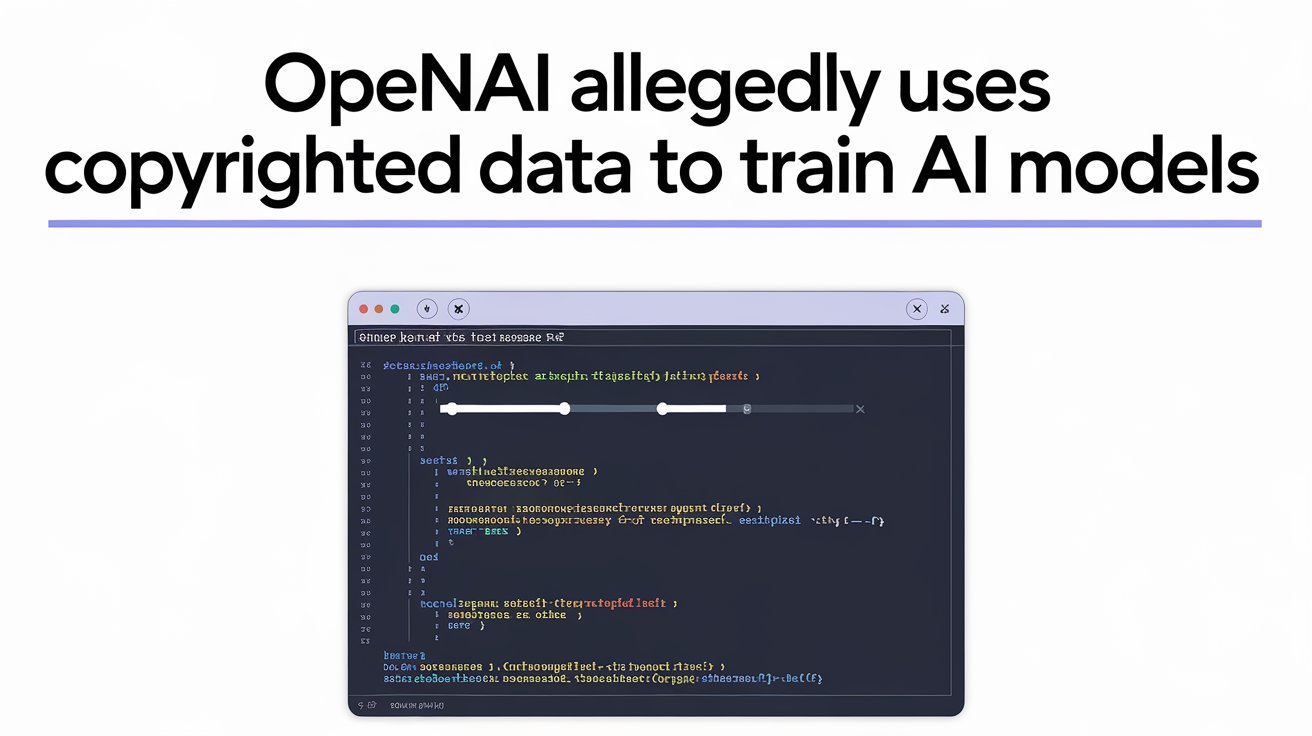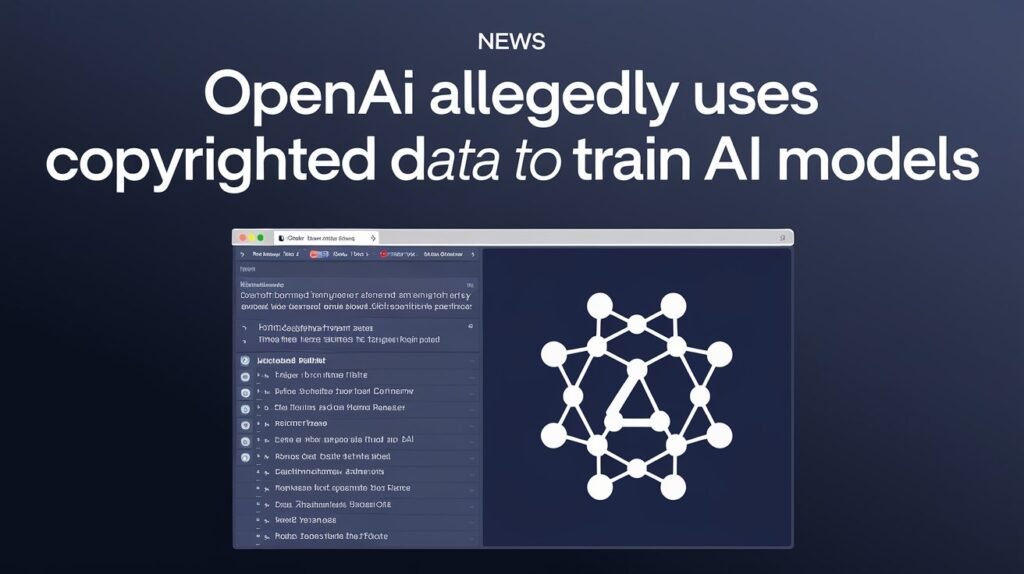OpenAI Allegedly Uses Copyrighted Data to Train AI Models


Artificial intelligence has taken giant leaps in recent years. Tools like ChatGPT are now helping people write emails, summarize long reports, and even brainstorm creative ideas. But behind the curtain, there’s a big question some folks are asking: Where does all that training data come from?
Recently, a new study stirred up the tech world by claiming that OpenAI — the company behind ChatGPT—has been using copyrighted content to train its AI models. If that’s true, it could have serious implications for the future of AI, creators’ rights, and how we use these powerful tools.
What’s This All About?
AI models like ChatGPT don’t just appear fully formed. They are trained using vast amounts of data, which usually includes books, articles, websites, and more. The more diverse and informative the data, the better the AI tends to perform.
But here’s the issue: What if some of that training data is protected by copyright? That’s the concern raised by a new study from researchers affiliated with the University of California, Berkeley, and other institutions. Their findings suggest that a significant chunk of OpenAI’s training data might have come from copyrighted sources — without permission.
How Did Researchers Figure This Out?
Great question. The study didn’t hack into OpenAI’s servers or anything like that. Instead, the researchers asked ChatGPT to do something surprisingly simple: try to quote full parts of various books. They then checked how closely the AI’s responses matched original copyrighted texts.
What they found was striking. When given certain prompts, ChatGPT was able to reproduce long passages — in some cases, almost word for word. And many of these came from books that are not publicly available online for free.
So, is it bad that ChatGPT knows these books?
Well, that depends on who you ask.
- For AI developers, large language models need high-quality data in order to understand how humans write and speak. Books are a goldmine for this.
- For writers and publishers, it feels like someone snooping through your work without asking — and possibly profiting off it.
- For users like you and me, it raises questions. Are we unknowingly using tools trained on works that should be protected?
It’s a gray area, but the conversation is heating up fast.
What’s OpenAI Saying?
OpenAI hasn’t admitted outright that it used copyrighted material, but it also hasn’t denied it very forcefully either. In the past, the company has said that training models on publicly available data — including materials from the open internet — is standard practice.
But here’s the catch: just because something is on the internet doesn’t always mean it’s free to use.
In fact, under U.S. copyright law, copying or reproducing protected content usually requires permission, or it must fall under “fair use.” The debate now is whether training an AI model counts as fair use or copyright infringement.
Is This the First Time AI Training and Copyright Have Clashed?
Nope — not even close. Companies like Google and Meta have also faced criticism over how they collect and use training data. In fact, several lawsuits have already been filed by writers, artists, and musicians claiming their works are being used to train AI without any credit — or payment — to them.
And it’s not just individuals. News organizations, educational publishers, and major book publishers are starting to push back. Why? Because they’re worried AI could take their content, package it in a new way, and offer it to the public — without giving anything back to the people who created it.
Why Should You Care?
That’s a fair question. After all, ChatGPT helps you get through your Monday emails, right? But here’s the thing:
- Creators spend years writing books, articles, or producing content. If their work gets used without permission, it sidelines their rights and revenue.
- When AI tools train without clear rules, it can lead to transparency issues. We don’t always know what’s under the hood.
- Legal uncertainty could lead to more restrictions on AI — fewer free tools, more limits, and potential costs passed on to users.
So while it may not affect your day-to-day life right now, it could shape the future of how we all use AI technology.
The Bigger Picture: Copyright in the Age of AI
Think about it like this: You wouldn’t want someone copying your entire diary and then making a podcast out of it — even if they promised to give it a cool robot voice. So why should authors tolerate their work being “learned” by AI without consent?
This is where we are today — in the early stages of figuring out how AI and copyright laws can work together. The technology is moving fast, but the rules haven’t quite kept up.
What Could Happen Next?
A few things might be on the horizon:
- More transparency from AI companies about their training data sources
- Tech companies seeking licensing deals with publishers and creators
- New copyright laws tailored to fit AI use cases
- Continued lawsuits and court decisions that set legal precedents
Whichever way it goes, one thing is clear: AI is here to stay, and the way it learns matters. As users, creators, and developers, we all have a role in shaping what ethical and fair AI tools should look like.
Final Thoughts
It’s easy to get caught up in the convenience and power of AI tools like ChatGPT — and they truly are revolutionary. But it’s also important to ask tough questions about how these tools are built. If copyrighted material is part of the mix, then so are human rights, labor, and creativity.
This isn’t just a legal issue — it’s a human one. Respecting the work of authors, journalists, and educators isn’t only fair; it’s the right thing to do.
As users, we can stay informed, support creators, and keep the conversation going. And as lawmakers and tech companies figure things out, you can be sure there’s more drama ahead in the world where copyright meets artificial intelligence.
What do you think? Should AI companies need to get permission before using copyrighted content to train their models? Share your thoughts in the comments below!
And if you found this post helpful, don’t forget to share it. Let’s keep everyone informed about the growing relationship — and tension — between creativity and AI.


